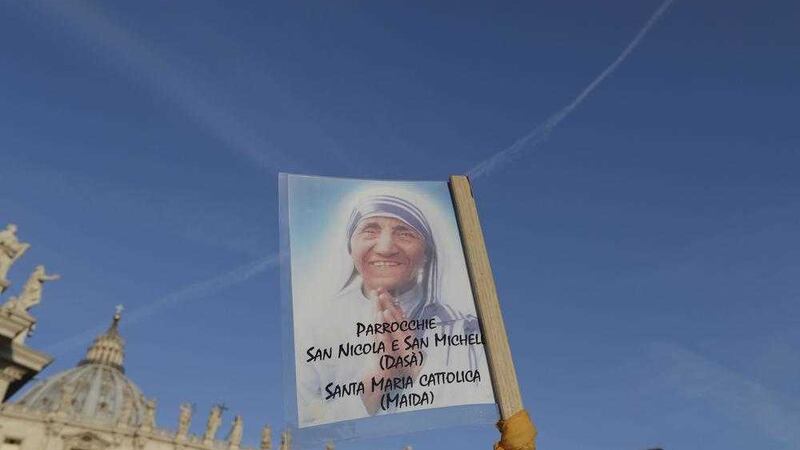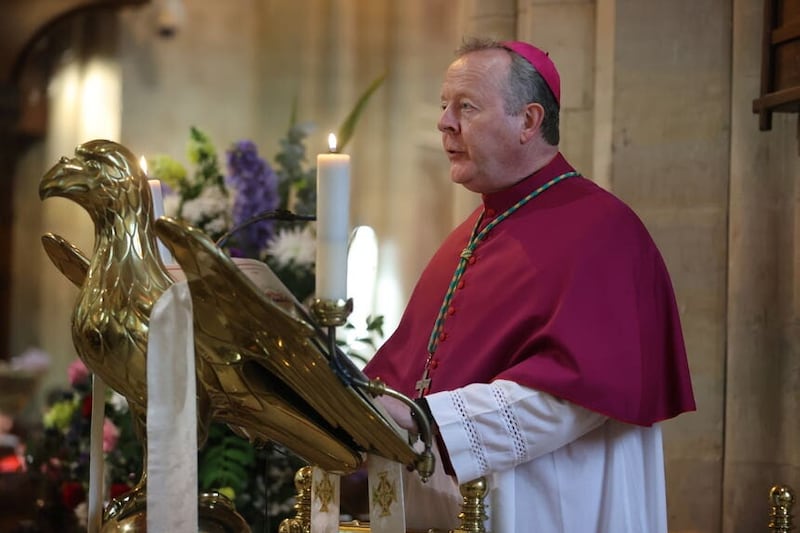A key theme of Pope Francis' Jubilee Year of Mercy has been his call on all of us to be merciful, as God, our Heavenly Father, is merciful.
We all know people who are inspired by the life and teaching of Jesus to do corporal and spiritual works of mercy in the world today - who reach out to relieve poverty, hunger and homelessness; who bring the joy of the Gospel into our world and invite others in turn to come to know Jesus in their lives.
The corporal and spiritual works of mercy are set out in that challenging reading from Matthew's gospel which ends with words of Jesus that were at the heart of the mission of St Teresa of Calcutta: "As often as you did it to the least of these brothers and sisters of mine, you did it to me."
I am grateful to have met many good and saintly people who `do mercy'. No doubt you too can think of women and men who care for the sick and suffering in our community, who feed the hungry, clothe the naked, welcome the stranger - and often do so quietly behind the scenes, without seeking any recognition or reward.
In the canonisation of Mother Teresa, the Church is offering us a modern day model of holiness or icon of mercy - someone we can look to as an example and an encouragement for ourselves to do mercy, to be mercy, especially for those who are most rejected or forgotten in our world.
For me there are three particular ways in which Mother Teresa illustrates how to #BeMercy in today's world.
Firstly, she was inspired to `do something beautiful for God'. I do it for Him, she often said.
Secondly, Mother Teresa opened herself up completely to what God wanted of her. In fact she once made a vow never to refuse God anything that God wanted of her. She simply wanted to be `like a little pencil in God's hands' and allow God to write mercy into the world through her.
Thirdly, Mother Teresa was able to see the face of Jesus in those to whom she brought God’s love and mercy. She saw the face of Jesus in the poorest of the poor, those with AIDS, those with terrible disfigurements and disease, those abandoned and dying on the streets from malnutrition.
It did not matter to her if the person in need was Catholic or other Christian or Hindu or Muslim. For her Calcutta was everywhere. She teaches us that when we do mercy it opens up for us a window through which we can see the face of Christ in all those who suffer in the world.
I am very grateful to the sisters of Saint Teresa's congregation, the Missionaries of Charity, who have lived and worked among us here in Armagh since 1996 when Mother and her sisters arrived from Dublin to set up home.
The sisters stayed at Arthur's Villas until 1999 before moving to Cathedral Road where they had established a convent and a hostel for women suffering from alcohol addiction. After a couple of years the hostel became a men's hostel, not only offering refuge from alcoholism but also from drug addiction and homelessness. The sisters have become a familiar sight on the streets of Armagh.
Saint Teresa’s sisters also provide faith development programmes and Catechism classes for children and adults in our community. Just a few weeks ago I was delighted to join the leaders of their summer scheme for local children in which they are greatly helped by students who travel here each summer from Malta.
The canonisation of St Teresa of Calcutta challenges us all to #BeMercy and also to give thanks for those who live the works of mercy as she did. In the coming three weeks I invite you to pray with me in thanksgiving for people you know who put the corporal and spiritual works of mercy into practice in their daily lives. It may be someone very close to you, your granny or carer or neighbour who quietly cares for a sick or anxious person you know.
It may be a nurse, doctor or teacher who goes beyond the call of duty to reach out to someone who would otherwise be forgotten. Perhaps you know a group like Alcoholics Anonymous or Saint Vincent de Paul Society whom you have experienced making a real difference to those who are in particular need of encouragement or help.
For reflection I offer you the concluding words of Pope Francis at the canonisation of Mother Teresa.
He said: "Her mission to the urban and existential peripheries remains for us today an eloquent witness to God's closeness to the poorest of the poor. I pass on this emblematic figure of womanhood and of consecrated life to the whole world of volunteers: may she be your model of holiness.
"May this tireless worker of mercy help us to increasingly understand that our only criterion for action is gratuitous love, free from every ideology and all obligations, offered freely to everyone without distinction of language, culture, race or religion. Mother Teresa loved to say, `perhaps I don't speak their language, but I can smile'. Let us carry her smile in our hearts and give it to those whom we meet along our journey, especially those who suffer. In this way, we will open up opportunities of joy and hope for our many brothers and sisters who are discouraged and who stand in need of understanding and tenderness."
:: Taken from a homily by Archbishop Eamon Martin at Mass of Thanksgiving for Saint Teresa of Calcutta








